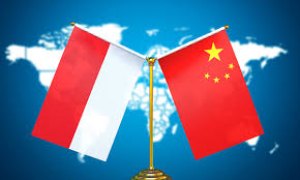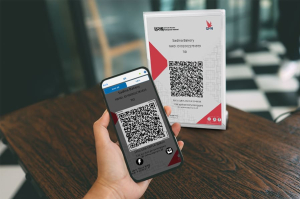Indonesian government announces new regulation on gold taxes
The government recently reorganized the collection of Income Tax (PPh) and Value Added Tax (VAT) on gold sales and related services by introducing a new Finance Minister Regulation (PMK) No. 48/2023.
PMK No. 48/2023, which was promulgated on April 28, 2023, came into effect on May 1, 2023. This new regulation repeals and replaces the several PMK related to gold tax, specifically PMK No. 30/2014; PMK No. 34/2017 Article 1 section (1) letter k, Article 2 section (1) letter h, and Article 3 section (1) letter i; and PMK No. 41/2022.
This new regulation applies to the sale or delivery of gold jewelry, gold bars, jewelry made of materials other than gold, gemstones, and other similar stones, as well as related services provided by manufacturers and traders of gold jewelry and gold bullion businesses.
Under the new regulation, gold producers and traders with an annual turnover below IDR 4.8 billion are also required to report their business and become confirmed as corporate taxpayers (PKP).
Gold jewelry producers are required to collect VAT at a certain rate, which is 1.1 percent of the selling price for sales to traders and 1.65 percent of the selling price for sales to end customers.
On the other hand, sales of gold jewelry from traders to manufacturers are set at zero percent of the selling price. This rate has decreased compared to the previous regulation (PMK No. 30/2014), where the sales of gold jewelry by manufacturers and traders were subject to VAT at ten percent multiplied by the tax imposition base (SPP), resulting in an effective rate of two percent of the selling price.
Additionally, gold jewelry manufacturers and traders are required to collect PPh Article 22 at a rate of 0.25 percent of the selling price.
Regarding the sales of gold bars, the Tax Regulations Harmonization (HPP) Law stipulates that gold bars intended for the country’s foreign exchange reserves are not subject to VAT. Likewise, gold bars with a 99 percent grade and a certificate, which are not intended for the country’s foreign exchange reserves, are also exempted from VAT. However, businesses selling gold bars must still collect PPh Article 22 at 0.25 percent of the selling price.
Compared to the previous regulation in PMK No. 34/2017, the PPh Article 22 rate for the sale of gold bars has decreased from 0.45 percent to 0.25 percent of the selling price.
It is worth noting that PPh Article 2 is not imposed on the sale of gold jewelry or gold bars by gold jewelry or gold bar businesses to end customers; taxpayers subject to final income tax for MSMEs; and taxpayers who have obtained PPh Article 22 exemption letter.
Additionally, no collection is made on the sale of gold bars to Bank Indonesia (BI) or sales made through the digital gold physical market.
Furthermore, service related to gold jewelry, gold bars, jewelry with non-gold material, gemstones, and other stones are also subject to PPh. Such services include modification, repair, coating, gilding, cleaning, and any other services related to such .
Purpose of new regulation
Director of Counselling, Services, and Public Relations of the Directorate General of Taxes Dwi Astuti said that the purpose of this rearrangement is to provide convenience, legal certainty, simplicity, and lower rates.
PMK No. 48/2023 is seen as a means of simplifying the fulfilment of PPh and VAT obligation, lessening the burden of tax administration, and reducing compliance costs.
“The tariff reduction is intended to encourage all business actors in the gold jewelry industry to enter the system, creating a level playing field across all levels of the gold jewelry industry ecosystem,” Dwi said on Monday, May 1.
This new regulatory approach focuses not only on the object of taxation (gold jewelry) but also on the subject of taxation (gold jewelers). Consequently, gold jewelers who sell non-gold jewelry, gemstones, and other similar items are subject to the same VAT as those who sell gold jewelry.
Already have an account? Sign In
-
Start reading
Freemium
-
Monthly Subscription
30% OFF$26.03
$37.19/MonthCancel anytime
This offer is open to all new subscribers!
Subscribe now -
Yearly Subscription
33% OFF$228.13
$340.5/YearCancel anytime
This offer is open to all new subscribers!
Subscribe now






